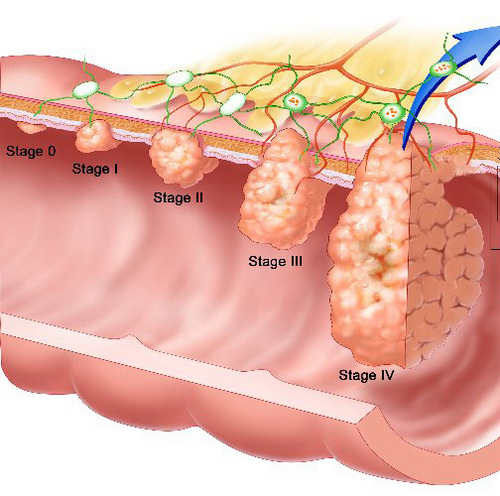One in six couples experience some level of difficulties in achieving pregnancy. Infertility is defined as not being able to get pregnant despite having frequent, unprotected sex for at least a year.
Introduction to (IVF)
Louise Brown was the first baby to be conceived by In Vitro Fertilisation (IVF). She was born on 25 July 1978. There are now more than five million babies born after IVF treatment worldwide.
IVF is recommended for couples who have tried other methods of fertility treatment without success, or for those who are not suitable for other methods.
IVF involves retrieving good quality eggs from the woman for insemination with her husband’s sperm in the laboratory. The resulting embryos are then transferred back into the womb for implantation.

The Assisted Reproductive Technology (ART) programme at NUH’s The Clinic for Human Reproduction (CHR) is one of the leading programmes of its type with many breakthroughs in the field of assisted reproduction. We are committed to help couples overcome infertility.
Since the inception of CHR, it has served many local and international patients, and performs about 600 fresh IVF cycles per year. Doctors, embryologists, medical technologists, nurses, psychologists and other allied health professionals work together as a team to provide our couples with the necessary support and assistance in a friendly and personalised manner.
Indications for IVF
IVF is an elective therapy for couples that have been otherwise unable to conceive naturally.
Indications for enrolment into an IVF programme may include, but are not limited to the following:
- Absent or blocked fallopian tubes
- Severe pelvic disease (severe pelvic endometriosis, postoperative pelvic scarring)
- Ovulation dysfunction (after failure with less invasive therapies)
- Severe male factor infertility
- Unexplained infertility
- Failed attempts at Intra-Uterine Insemination
- Couple is at risk of transmitting a genetic disease, and wish for Preimplantation Genetic Diagnosis (PGD)
Preparation for the IVF programme
A. First consultation
When you first meet with the IVF specialist, you will be asked to answer questions relating to your relevant medical & surgical history, previous fertility investigations, allergies, etc.
Physical examination will include a general survey, vital signs, listening of the heart and lungs with a stethoscope, as well as examination of the breast, abdomen, cervix, uterus and ovaries for the woman.
Examination of the man will include examination of the penis and scrotum when indicated.
If you have undergone any medical investigations in other healthcare institutions or any IVF cycles previously, it would be helpful to bring all the medical and laboratory reports as you may not need to repeat some tests.
B. Other investigations
For Women:
- Blood test for serum Follicle Stimulating Hormone (FSH), Luteinising Hormone (LH), Estradiol, Testosterone, Prolactin, and thyroid function tests.
- Serum Anti-Müllerian Hormone. This is to assess ovarian reserve.
- German measles (Rubella)
- Blood group
- Thalassaemia screen
- Pap smear (if this has not been done within the last 3 years)
- Endocervical swab for Chlamydia
- Blood tests for infections
- Hepatitis B
- Hepatitis C
- Syphilis
- Human Immunodeficiency Virus (HIV)
For Men:
- Semen Analysis. This is done after abstinence from ejaculation or intercourse for at least 3-6 days. Semen can be collected at home and brought to the Andrology lab within 2 hours. Alternatively, there is a collection room within the hospital.
- Blood tests for infections:
- Hepatitis B
- Hepatitis C
- Syphilis
- Human Immunodeficiency Virus (HIV)
Infection screening is a mandatory requirement by the Ministry of Health for all patients enrolling in IVF programmes. The test results for HIV and the rest of the diseases are valid for 6 months and 1 year respectively.
Upon completion of the investigations, you will meet with the IVF specialist again to review the results.
C. Pre-IVF counselling
Pre-IVF counselling is essential to couples going for the IVF programme. Pre-IVF counselling can be done at our clinic prior to starting the programme.
At the Counselling session:
- The couple is given detailed information on the IVF programme
- The couple can discuss the programme schedule with our nurses
- The validity of all pre-requisite laboratory examinations and documents are verified
- Consent for the IVF programme, admission, operation, insemination/ ICSI and embryo freezing, etc. will be explained and signed
- Financial counselling will also take place
Our clinic staff will assist with your enquiries. Should there be additional need, a return visit to the attending IVF specialist may also be scheduled after the pre-IVF counselling.
Psychological counselling is also offered to all couples considering an IVF programme, as there are many important issues to be considered in the psychological welfare of the couple during what can be an extremely emotional and stressful time in their lives.
D. IVF Planning
The IVF treatment cycle will last for approximately four to six weeks. It usually starts on the preceding menstrual cycle of the planned IVF programme. Our nurses at CHR will inform you of the key dates and steps to be taken with regards to medications and appointments at the clinic.



